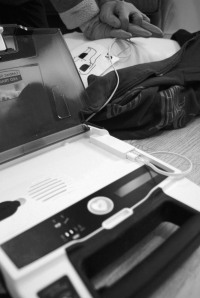Implementation of mechanical chest compression in out-of-hospital cardiac arrest in an emergency medical service system.
American Journal of Emergency Medicine. Volume 31, Issue 8 , Pages 1196-1200, August 2013
The aim of this study was to describe the outcome changes after out-of-hospital cardiac arrest (OHCA) in Gothenburg, Sweden, after introduction of mechanical chest compression (MCC).
Methods Following introduction of MCC, 1183 OHCA patients were treated from November 1, 2007, to December 31, 2011 (period 2). They were compared with 1218 OHCA patients before MCC was introduced from January 1, 1998, to May 30, 2003 (period 1). Patients in period 2 were evaluated for survival in relation to MCC use.
Results The percentage of patients admitted to hospital alive increased from 25.4% to 31.9% (P < .0001). Survival to 1 month increased from 7.1% to 10.7% from period 1 to period 2. The proportion of ventricular fibrillation/ventricular tachycardia decreased in period 2. However, bystander cardiopulmonary resuscitation, crew-witnessed cases, percutaneous coronary intervention, therapeutic hypothermia, and implantable cardioverter-defibrillator use increased, as did time from call to emergency medicine service arrival and to defibrillation.
In period 2, 60% of OHCA patients were treated with MCC. The percentages admitted alive to hospital (MCC vs no MCC) were 28.6% and 36.1%. Corresponding figures for survival to 1 month were 5.6% and 17.6%. In the MCC group, we found increase in the delay from collapse to defibrillation, greater use of adrenaline, and fewer crew-witnessed cases.
Conclusion Survival to 1 month after implementation of MCC was higher than before introduction. However, patients receiving MCC had low survival. Although case selection might play a role, results do not support a widespread use of MCC after OHCA.

